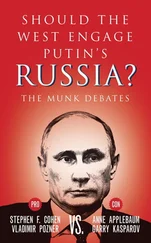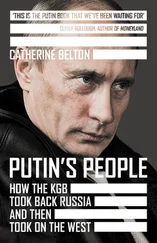But it was not Putin’s seizure of the media, his suppression of dissent, or even his invasions and incursions that would matter most in his own fate and Russia’s but, as will become quite clear, his failure to diversify the economy away from its dependence on gas and oil. The roots of that problem go back a century. In Russia all stories are old stories.
* * *
For centuries Baku’s “fountain of oil,” as Marco Polo called it when passing through in the 1270s on his way to China, had been used for lighting and as “an unguent for the cure of cutaneous distempers in men and cattle.” [219] Marco Polo, The Travels of Marco Polo (New York: Modern Library, 2001), p. 23.
It wasn’t until the late nineteenth century that Baku’s first gusher came on. Things developed at a breakneck pace. Between 1898 and 1902 Imperial Russia’s oil fields were at the peak of their production, having surpassed those of the United States to lead the world.
The possibilities for fast and enormous wealth attracted people like John D. Rockefeller, the Rothschilds, and the Nobel brothers (they of dynamite and the Prize), who constructed the world’s first pipeline and oil tanker. But it was not only international capitalists who were drawn to the oil fields of Baku. Just as the Russians were overtaking the United States, a twenty-two-year-old Georgian who had been radicalized while studying to become a priest, arrived on the scene. Mixing metaphors from his seminary and political lives, Joseph Stalin said that the strikes he organized in Baku were his “revolutionary baptism in combat.” [220] http://www.marxists.org/ … /stalin/ … /stalin/05.ht.
He and his fellow organizers succeeded all too well. By the end of the failed 1905 revolution two-thirds of the oil wells in Baku had been destroyed.
* * *
Though names like Standard Oil and Rockefeller were in Communist mythology synonymous with rapacious exploitation, it turned out that Soviet Russia’s oil fields could not be put back into operation without foreign help. In the early 1920s, Lenin had to come to terms with the severity of the havoc wrought by the First World War, the revolution, and the civil war. To bring back some of life’s daily necessities and pleasures, Lenin introduced NEP, the New Economic Policy, which allowed small business to reemerge and flourish. Foreign experts were allowed in.
Lenin’s moves, though ideologically distasteful, were successful. Goods reappeared on the shelves of stores and the oil began flowing again both in the older fields and in the new ones opened up with advanced Western technology. One of those helping out was Frederick Koch, grandfather of today’s notorious Koch brothers. As the story goes, an invention of his for refining gasoline from crude oil was effectively squashed by the major U.S. oil companies, which attacked him with patent-infringement lawsuits that took him more than a decade to win.
In 1928 Koch signed a $5 million contract to construct fifteen refineries in the USSR in Baku and other oil-producing regions like Chechnya. The young Mr. Koch left the USSR with two things: a small fortune of $500,000 (around $7 million in today’s dollars), which would serve as the basis for the future Koch empire, and a fierce hatred of Communism that led him to become one of the founding members of the John Birch Society. Whether he perceived the irony of his entrepreneurial efforts being crushed by naked capitalism at home and handsomely rewarded by Stalin’s Russia is doubtful to say the least.
By the end of the 1920s, however, Soviet farms and factories were producing enough for Soviet citizens, and NEP was done away with. The little stores were closed, and small business became a criminal activity overnight. The foreign oil specialists were paid off and sent packing. Lenin was dead and there was a new man in the Kremlin, the former oil-field strike organizer Joseph Stalin.
By 1929, with his archrival, Leon Trotsky, in exile and the capitalist world in a shambles, Stalin moved to reshape the Soviet economy into the centralized control-and-command model that persisted until the USSR collapsed under its own weight in 1991. Stalin forced the peasants onto collective farms. Those who displayed reluctance or resistance, and those who were considered well-off and therefore by definition exploiters, were shipped to Siberia and Kazakhstan by cattle car. Millions of Ukrainian peasants who were considered especially recalcitrant—conservative by their peasant nature, nationalistic because of being Ukrainians—were simply starved to death by artificially created famines. All food was confiscated; villages were cut off at the beginning of winter and the corpses were collected come spring. Many Ukrainians would later welcome Hitler’s armies simply because they could not imagine anything worse than Stalin.
Like all the rest of industry, the oil industry came under greater centralized control. The measures of performance were, inevitably, quantitative. For example, when it came to drilling, it was not the amount of oil that was discovered that would prove the standard of measure, because it might be years before that number could be calculated. In the here and now what could be precisely determined was the number and depth of holes drilled, which more often than not led to landscapes pocked like moons.
Nevertheless, oil was found, pumped, refined. In any case, the world market for oil was weak throughout most of the thirties because of the Depression. The USSR was exporting more timber than petroleum.
Germany became one of the USSR’s main customers for oil, especially after the surprise Molotov–Ribbentrop Pact of 1939, which pledged nonaggression and, secretly, agreed on the dismembering of Poland and the Baltic states. Time would reveal that Stalin had in effect been selling Hitler the gas for his tanks and trucks to invade the Soviet Union. When attacking in June 1941, Hitler knew his blitzkrieg had to succeed because he could never win a war of attrition against the USSR unless, that is, he had the grain of Ukraine and the oil of Baku.
September 25, 1942, was the date set for the capture of Baku’s oil fields. A few days before the attack Hitler’s generals presented him with a cake whose frosting depicted Baku and the Caspian Sea. (There are twenty seconds of black-and-white film of all this.) Greatly amused, Hitler took the “Baku” slice for himself though supposedly also saying: “Unless we get Baku’s oil, the war is lost.”
In July, aware that an attack on Baku was coming, Stalin summoned Nikolai Baibakov, who oversaw Soviet oil production. According to Baibakov’s obituary in The New York Times , “Stalin pointed two fingers at Mr. Baibakov’s head…. ‘If you fail to stop the Germans getting our oil, you will be shot,’ Stalin said. ‘And when we have thrown the invader out, if we cannot restart production, we will shoot you again.’” As the Times notes laconically: “Mr. Baibakov accomplished both missions.” [221] Obituary, “Stalin’s Oil Minister Dies at 97,” New York Times , April 2, 2008.
And so Baibakov not only was not executed once or even twice, but outlasted Stalin and all the other bastards great and small, only dying in 2008 at the age of ninety-seven.
* * *
From the end of the war to the end of the USSR, a stretch of only forty-six years, the oil industry was much like the country itself—mighty, cumbersome, fatally flawed. The Baku oil fields, damaged during the war, never regained the production heights achieved before the war. But vast new fields were discovered in the Volga-Ural region and later in West Siberia by teams of intrepid geologists out “feeding the mosquitoes.” Paranoia about contact with foreigners was in part what drove the relentless hunt for new oil fields. Instead of acquiring the knowledge and technology that would have maximized output, but which would have required foreign technicians and specialists on site to demonstrate how the equipment worked, exploration was unceasing. There were always more fields, more oil over the next ridge. Rossiya bolshaya , Russia is big, as the Russians like to say.
Читать дальше
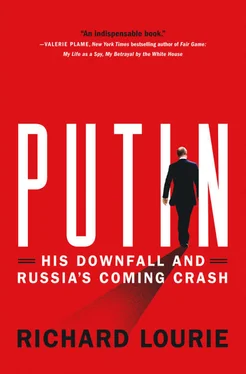

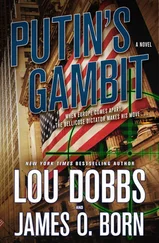
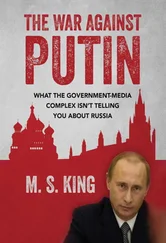
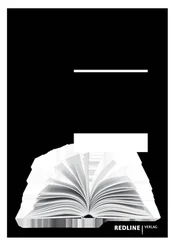
![Stephan Orth - Behind Putin's Curtain - Friendships and Misadventures Inside Russia [aka Couchsurfing in Russia]](/books/415210/stephan-orth-behind-putin-s-curtain-friendships-a-thumb.webp)

